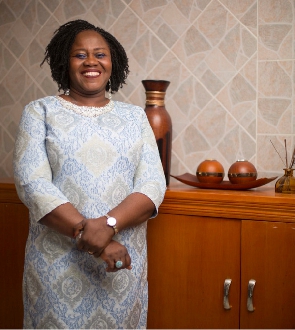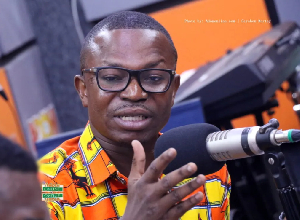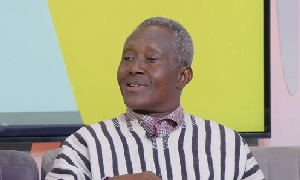Introduction
Indeed, an independent Judiciary is the crown jewel of a constitutional
republic. We proudly associate ourselves with this truism by Justice Brett
Kavanaugh of USA. This statement is also correct in Ghana in view of the fact
that our Judiciary occupies a pre-eminent position in our democratic affairs.
It is, thus, a monumental achievement to be nominated to the high office of
the Chief Justice as Head of the judiciary. On this score, we deem it
appropriate to congratulate Her Ladyship, Justice Gertrude Araba Esaaba
Torkornoo for her nomination for appointment as the Chief Justice of Ghana.
If she is approved by Parliament, Her Ladyship would become the 8th Chief
Justice to be appointed under Ghana’s 4th Republican era and become the
fourth high-ranking personality in Ghana by virtue of Article 57(2) of the 1992
Constitution.
While congratulating Her Ladyship on her nomination, we deem it needful to
interrogate the current appointment regime for appointing the Chief Justice.
This article attempts to probe this issue.
Constitutional role of the Chief Justice
The Chief Justice is the Head of the Judiciary and the office holder is
responsible for the administration and supervision of the Judiciary. Article
125(4) of the 1992 Constitution states that “The Chief Justice shall, subject to
this Constitution, be the Head of the Judiciary and shall be responsible for the
administration and supervision of the Judiciary.”
Additionally, the Chief Justice has the administrative duty to empanel Justices
of the Supreme Court and other Courts in the country. This important role was
upheld by the Supreme Court in the case of Agyei Twum v. Attorney General
and Another [2005-2006] SCGLR 732.
Qualification and appointment of the Chief Justice
To be eligible for appointment as the Chief Justice of Ghana, the person must
be qualified to be appointed as a Justice of the Supreme Court. That is to say
that the person must be of high moral character and proven integrity and must
have been a lawyer for at least fifteen years (Article 128(4) of the 1992
Constitution).
Per Article 144(1) of the 1992 Constitution, the authority to appoint the Chief
Justice is vested in the President of Ghana. The President exercises this
authority on the advice of the Council of State and with the prior approval of
Parliament. Article 144(1) of the 1992 Constitution states that “The Chief
Justice shall be appointed by the President acting in consultation with the
Council of State and with the approval of Parliament.”
Practices in USA and UK
Per Article II, Section 2, Clause 2 of the U.S. Constitution, in the United States of America (USA), the Chief Justice of the Supreme Court is appointed by the President and confirmed by the Senate (not the House of Commons which is
more politically sensitive). In the UK, the Chief Justice is appointed by the
Queen (not politically sensitive) in consultation with the Prime Minister
following consultation with the Lord Chancellor and an independent selection
commission.
Critiques
Based on the above, we submit the following critiques of the current system
for the election of the Chief Justice of Ghana.
Firstly, the current system constitutes a deviation from the norms of
separation of powers and its associated principles of checks and balances. In
a more practical sense, the current system for appointing the Chief Justice
could be faulted on the ground that the President who is the head of the
Executive branch, appoints the Chief Justice as Head of an independent
Judiciary with the approval of a partisan Parliament. Such a system would undermine the independence of the Supreme Court to deliver its constitutional
mandate.
Secondly, the current appointment system runs contrary to what pertains in
Parliament. The Speaker of Parliament, as head of Parliament is elected
exclusively by Hon. Members of Parliament. This is anchored in Article 95(1)
of the 1992 Constitution, which stipulates that “There shall be a Speaker of
Parliament who shall be elected by the Members of Parliament from among
persons who are members of Parliament or who are qualified to be elected as
members of Parliament.” Such an internal election forms an important
bedrock for building an independent Legislature.
Thirdly, the power of the President to initiate the appointment process of
Justices of the Supreme Court and the Chief Justice adds to the enormity of
powers conferred on the President. There has been a clarion call for an
amendment to the 1992 Constitution to prune down some of the powers of the
President. Except for elected public officers, almost all other public officers in Ghana are appointed by the President (Article 170 of the 1992 Constitution).
Fourthly, the current appointment regime fuels the perception of the
President's influence on the Judiciary for favourable judgments. This view has
been shared by prominent Ghanaian researchers, with some going to the extent of stating that "Judges at Supreme Court rule on political cases based
on their political leanings" (Atuguba, 2018).
Lastly, it is true that the current appointment regime reflects the case in other developed countries like USA and the UK. However, the appointment
procedure in these developed countries contain strong mechanisms to deliver
an appointee who is generally acceptable to people.
For instance, in the USA, the Chief Justice of the Supreme Court is appointed by the President and confirmed by the Senate (and not the House of Commons which is more politically sensitive). In the UK, the Chief Justice is appointed by the Queen (not politically sensitive) in consultation with the Prime Minister following consultation with the Lord Chancellor and an independent selection
commission.
Recommendation
There is a widespread perception of the Executive influence of the Supreme
Court through the appointment of Justices of the Supreme Court and the Chief Justice. The Chief Justice is perceived to influence judgments in favour
of the appointed President.
In view of this, there must be a search for an appointments regime that takes
away the presence of the President in the equation. For this reason, the
writers take the view that the appointment of Justices of the Supreme Court
should come from the Judiciary itself through the Judicial Council.
Accordingly, we suggest that Article 144 of the 1992 Constitution and all
related provisions be selected among the possible candidates for the
amendment of the 1992 Constitution.
Conclusion
The President plays a central role in the appointment of Justices of the
Supreme Court through a partisan Parliament. This appointment regime fuels
the perception of the Presidential influence of the Judiciary and the increasing
lowering of the impartiality and trust of the Judiciary.
Many have described the decisions of the Supreme Court as political decisions and other cognate terms. In considering alternatives to strengthen our constitutional democracy, the writers suggest an appointments regime that takes away the presence of the President in the equation through a constitutional amendment. For this reason, the writers take the view that the appointment of Justices of the Supreme Court should come from the Judiciary itself through the Judicial Council.
Opinions of Tuesday, 30 May 2023
Columnist: Goodnuff Appiah Larbi



















